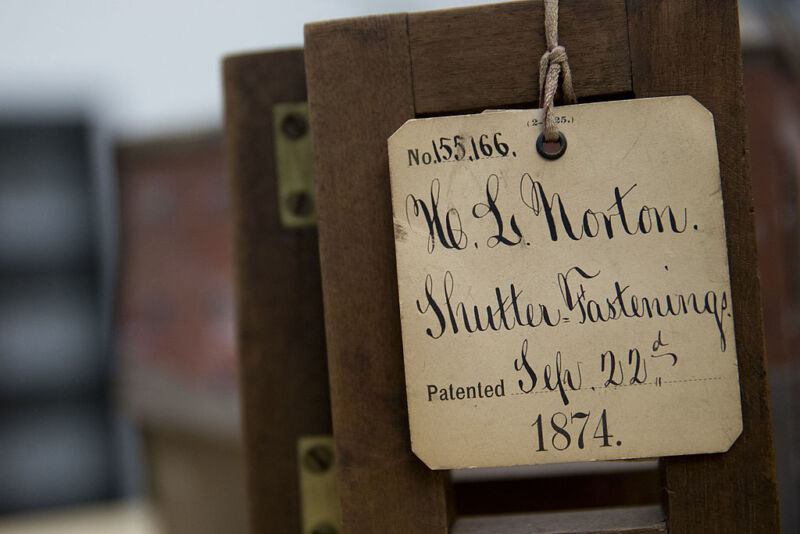Patents for software and genetic code could be revived by two bills in Congress

Enlarge / An image from the U.S. Patent and Trademark Office, where in 1874, the newest thing was not software or genetic compositions, but shutter fastenings from H.L. Norton. (credit: Andrew Harrer/Bloomberg via Getty Images)
The Senate Judiciary Committee is scheduled to consider two bills Thursday that would effectively nullify the Supreme Court's rulings against patents on broad software processes and human genes. Open source and Internet freedom advocates are mobilizing and pushing back.
The Patent Eligibility Restoration Act (or PERA, S. 2140), sponsored by Sens. Thom Tillis (R-NC) and Chris Coons (D-Del.), would amend US Code such that "all judicial exceptions to patent eligibility are eliminated." That would include the 2014 ruling in which the Supreme Court held, with Justice Clarence Thomas writing, that simply performing an existing process on a computer does not make it a new, patentable invention. "The relevant question is whether the claims here do more than simply instruct the practitioner to implement the abstract idea of intermediated settlement on a generic computer," Thomas wrote. "They do not."
That case also drew on Bilski v. Kappos, a case in which a patent was proposed based solely on the concept of hedging against price fluctuations in commodity markets.